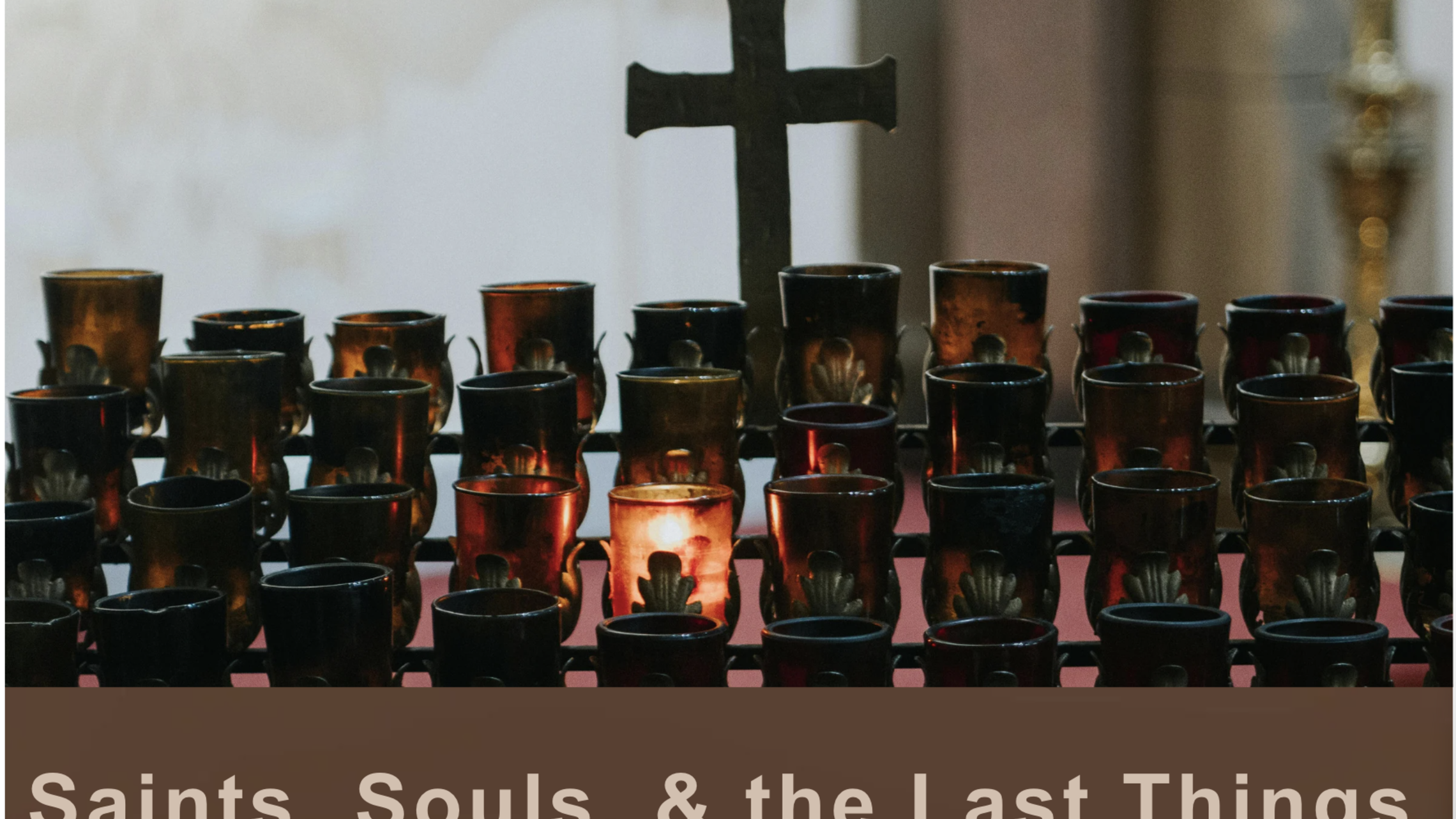In These Latter Times

The End Tmes & Atheism
In These Latter Times
The End Times and Atheism
Fr. Frederick Edlefsen
A tale was told about cosmonaut Yuri Gargarin – the first man in outer space – after he returned from his expedition in April 1961. During the state celebration, Nikita Khrushchev asked him, “Tell me, Yuri, did you see God up there?” Gargarin paused for a second, then replied, “Yes sir, I did.” Khrushchev pouted and said, “Don’t tell anyone.” Shortly afterward, the Russian Orthodox patriarch pulled Gagarin aside and asked, “Tell me, my son, did you see God up there?” Gargarin haltingly replied, “No sir, I did not.” The patriarch said, “Don’t tell anyone.”
Religious talk is often like this Russian joke. Question-begging questions (Did you see God up there?) can provoke baseless “theological” debates. Whether it’s a book bought on Concourse B or a college class, religious discourse can be like having a bad meal at a bad restaurant: if you think the food is bad, wait till you see the kitchen. When talking about religion, underlying premises (“see the kitchen”) matter.
What do we presume about human nature (anthropology)? How do humans know things, and what can they know (epistemology)? What is divine revelation (fundamental theology)? What is meant by “God” (philosophy)? Theology presumes something about all these topics. Suffice it to say: without a common ground of premises, we talk past each other (like in politics). Conversations wander into never-never land, as they are based on neither Faith nor Reason. We run the risk of being unfaithful and unreasonable. Like a spooky road in a ghost story, it dead-ends in an agnostic swamp.
St. Anselm (1033-1109) said God is “a being than which no greater can be conceived.” That point only applies to God. “Conceptions” of the human mind conform to creation, not the Creator. Because of creation, a Creator can be “conceived.” But mental conception ends there. Creation, which we see, suggests an unseen Artist hiding behind his art. “For what may be known about God is plain to them, because God has made it plain to them. For since the creation of the world God’s invisible qualities, His eternal power and divine nature, have been clearly seen, being understood from His workmanship” (Romans 1:19-20).
Therefore, we know God exists. That’s the pinnacle of reason. As for atheism, it’s more a disease of the will than of the mind. After all, it’s impossible to disprove God’s existence because it’s impossible to disprove the existence of anything – including things for which (unlike God) we have no evidence. Like unicorns. But unlike unicorns, there’s plenty of evidence for God. As Leibnitz (1646-1716) put it, “Why something and not nothing?” Philosophically, God’s existence is certain. That certainty has nothing to do with religion or Faith. It’s just reasonable. That’s a compliment to the human mind. A concept of God is the mind’s limit and greatest achievement.
If it’s reasonable to think “God exists,” then it’s reasonable to believe that God said something to us. “What God said” is called “revelation.” It’s the basis of Faith, and it supplies the premises of theology. Therefore, Faith is a certainty composed of mysteries. The Catholic Catechism says, “Faith is certain. It is more certain than all human knowledge because it is founded on the very word of God who cannot lie. To be sure, revealed truths can seem obscure to human reason and experience, but ‘the certainty that the divine light gives is greater than that which the light of natural reason gives.’ ‘Ten thousand difficulties make not one doubt’” (CCC 157). The articles of Faith – doctrine – open up a whole new world of possibilities for the mind (and the heart!). By Faith, we transcend ourselves.
News reports, TV documentaries, New York Times bestsellers, “scholarly” findings, “studies” and even textbooks often claim all but conclusive evidence debunking Christianity or at least casting doubt on it. They assert things like Jesus had brothers, or that Jesus was married to Mary Magdalene, or that Christian orthodoxy was only an emperor’s imposition, or that Jesus didn’t say half that things quoted in the Gospels. My favorite spurious claim is that there’s no evidence of a resurrection. As if rising from the dead would leave behind fingerprints, good-bye notes and a paper trail, or that there are other resurrections by which we can measure this one. Another favorite is that Pentecost was a mass hallucination, as if tripping-out would give rise to a Church. If they really did have “too much wine” (Acts 2:13), it would have ended in a hangover, not a hierarchy.
Headlining “Who Was the Real Jesus?” briefly spikes readership, especially around Christmas and Easter. What follows is predictable: viral crises of faith that fizzles like a dud firework. It’s what happens when religion loses sight of “the kitchen” – its basic premises. At worst, all of this should feel like being barked at by a pack of Chihuahuas. Annoying, but not fatal. Years ago, I was told that I had my “head in the sand” because I wasn’t reading The Da Vinci Code. I replied that life’s too short, and some books are too long. Ask me any question provoked by that book, and I’ll ask you what your premises are – about reality, man, God or “what God has said.” If Faith is shaken by Dan Brown or the Discovery Channel – none of whom have half the brains necessary to be the Antichrist – what’ll happen when the real Antichrist comes? Time’s End is closing in on us, and we have yet to see Faith’s biggest trials. It’s for this we must prepare.
Categories:



